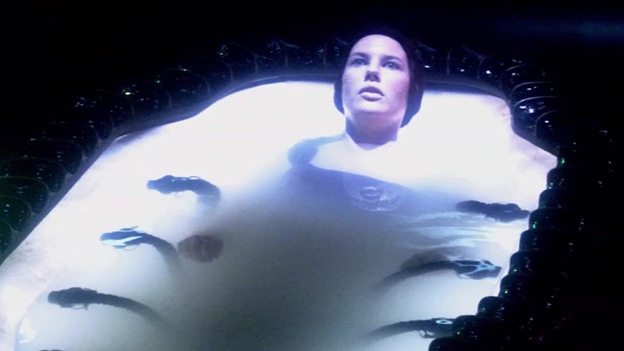A Different Vision of AI
- 2 minutes read - 357 wordsNPR recently shared Erik Baard’s suggestion of why humans ought, and perhaps are morally obligated to, develop Artificial Intelligence.
Traditionally AI opinions are predictable. Either “bots run amok (possibly enslaving humanity, determining us a parasite, rendering all matter indistinct, or generically squashing our free will and giving us a life that we consider less human)” or “bots are our salvation: they will help us, we will become them, or they will optimize humanity’s place on Earth benevolently.”
Baard makes an interesting supposition, the ecological fate of the Earth is sealed: we will exhaust the resources on this planet in a finite measure of time. Or, perhaps, we will upset the balance of ecology such that we sterilize ourselves, poison our foodstores, or overengineer our crops to the point that their homogeneity makes them vulnerable to utter blight. Before that happens, something unique on Earth has arisen: the ability to create electronic systems capable of surviving inter-planetary travel.
On a planet with intelligent whales, birds, squid, silicon-based plants, the possibility of creating a single shard of etched silicon wafer is a total impossibility. It could be that in the Drake equation fc is remarkably low.
Therefore to create a digital AI being that can carry the skill of intelligent machine construction (ça veut dire: itself) and human life might be humanity’s gift to the Universe itself.
Imagine this mechanical panspermia. As the Earth is a charred cinder held in the corona of a swollen Red Giant, and as an inter-galactic collision begins that will plunge Earth into the event horizon of a neighboring galaxy’s central black hole, a single robot harvests clay and ammonia, incubates RNA, and injects it into a small E. coli colony. It injects this primitive mixture of genetic soup into a mineral substructure as lakes of fresh water roil in a humid atmosphere. First the bacteria, then the protazoa, and finally that entitled creature rises again. And perhaps as he places a naive fleshy hand to metal that endured the ravages of inter-planetary travel, the device will exit hibernation and say: “Mankind, how lovely it is to see you again.”
As The Hybrid says:
